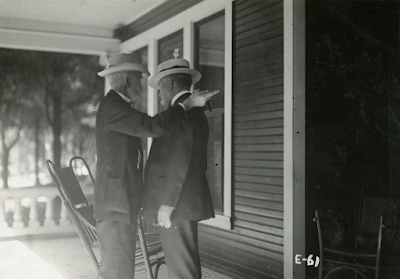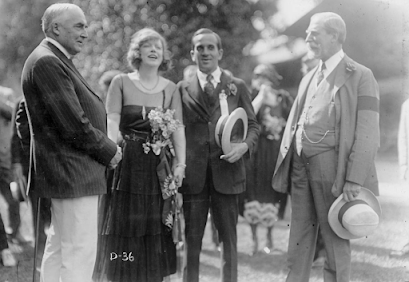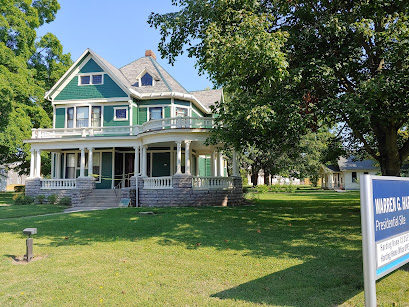Senator Harding hosts "Governors' Day" today and welcomes a number of politicians who start to arrive early this morning.
Today's speech is nicely summarized by a report in the New York Times: "A continuation of the reclamation policies begun by Theodore Roosevelt, under a larger and more liberal plan that insures equality of privilege and opportunity, was the plea made by Senator Harding in addressing ten Governors and three Republican candidates for Governor who spent today with him here." Reclamation is described elsewhere as "the menace of too much city population and not enough farm population."
The governors are:
- R. Livingston Beeckman, Rhode Island
- Thomas E. Campbell, Arizona
- Robert D. Carr, Wyoming
- James P. Goodrich, Indiana
- Frank O. Lowden, Illinois
- Samuel R. McKelvie, Nebraska
- Peter Norbeck, South Dakota
- E. L. Phillip, Wisconsin
- William C. Sproul, Pennsylvania
- William D. Stephens, California
The candidates are:
- Arthur M. Hyde, Missouri
- E. F. Morgan, West Virginia
- J. A. O. Preus, Minnesota
Governor Lowden offers these words: "We admire you, Senator Harding, more than I can say for the dignity and self-restraint with which you discuss public questions. We approve most heartily of the devotion you have to Constitutional Government, and we not only admire your public utterances, Senator Harding, but we applaud the fact that you do not resort to charges against the opposition. It is entirely beyond my power to express the regard we feel for you because you do not hold false promises to the people.."
Harding's introduction:
Your Excellencies: — It is a mighty pleasing thing to greet you as the official representatives of several of our great commonwealths, and especially gratifying to me to be able to take up with you, for brief discussion, one of the most interesting and timely problems of the day. I refer to that of reclamation and development in the great and wonderful West. What a wonderful land is ours! No one has ever come to a full realization of the physical incomparableness of these United States. Nature has been very generous with her bounty and has given us, in the great and measureless West, a variegated and picturesque empire, as beautiful as Switzerland, multiplied many times over in extent, and with a diversification of industry and enterprise which Switzerland could not develop because her mountains are well nigh barren of the riches which characterize the Rockies and the Coast ranges.
- "Attending Fair." Mansfield News-Journal. 31 August 1920.
- "Cooper Post Picnic Is Well Attended Today." Marion Daily Star. 31 August 1920.
- "Governors' Day Over at Marion." Mansfield News-Journal. 31 August 1920.
- "Menace Seen by Nominee." Marion Star. 31 August 1920.
- "Notable Visitors Are All Pleased Yesterday." Marion Star. 1 September 1920.

















































